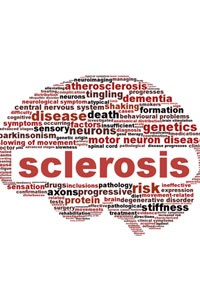Despite significant advancements in medical research, the exact cause of multiple sclerosis (MS) remains uncertain. What is known for sure is that MS is an autoimmune condition in which the immune system mistakenly attacks the myelin sheath—a protective covering around nerve fibers. This damage disrupts nerve signals between the brain and the body, leading to a variety of neurological symptoms. Modern diagnostic techniques, including MRI scans and spinal fluid analysis, have improved early detection, but a definitive single test for MS still does not exist.
A Tale of Numbers
According to recent estimates, more than 1 million people in the U.S. and over 2.8 million individuals worldwide have been diagnosed with MS. The likelihood of developing MS in the general population is around 1 in 750, but this risk increases to approximately 1 in 30 for those with a first-degree relative affected by the disease. Women are nearly four times more likely than men to develop MS, a disparity that researchers believe may be linked to hormonal and genetic factors.
MS symptoms vary widely among individuals and can be unpredictable. Some of the most common initial symptoms include numbness or tingling in the limbs, vision disturbances, muscle weakness, dizziness, and balance issues. Although MS is most often diagnosed between the ages of 20 and 40, it can also affect children, with an estimated 30,000 pediatric cases worldwide. Emerging research suggests that early intervention can significantly slow disease progression and improve long-term outcomes.
Strategy for Success
Current treatment approaches for MS aim to slow disease progression, manage symptoms, and improve the quality of life. Disease-modifying therapies (DMTs) have evolved significantly, with new drugs reducing relapse rates and delaying disability progression. Other key strategies include physical therapy, mental health support, and lifestyle adjustments. A multidisciplinary approach involving neurologists, physiotherapists, nutritionists, and mental health professionals has shown to be the most effective way to manage the disease.
Exercise is now recognized as an essential component of MS management. Regular physical activity has been shown to improve mobility, enhance mood, and reduce fatigue—a common and debilitating symptom of MS. Recent studies indicate that a combination of resistance training, aerobic exercise, and flexibility routines can significantly enhance overall health and well-being in MS patients. Personalized fitness plans, designed in consultation with healthcare providers, are recommended to maximize benefits while preventing overexertion.
Muscles Matter
Individuals with MS face an increased risk of osteoporosis due to reduced physical activity, chronic inflammation, and long-term corticosteroid use. Recent findings emphasize the importance of weight-bearing and resistance exercises in preserving bone density. Activities such as weight training, yoga, and even modified high-intensity interval training (HIIT) can help strengthen muscles, improve balance, and prevent fractures, thereby enhancing mobility and independence.
Waist Management
Weight management is a crucial aspect of MS care, as obesity can exacerbate symptoms and increase inflammation. Side effects from medications, particularly steroids, can contribute to weight gain, making dietary choices even more important. A Mediterranean-style diet, rich in omega-3 fatty acids, fiber, and antioxidants, has been linked to improved symptom management and reduced inflammation in MS patients. Ensuring adequate hydration and limiting processed foods can also help individuals maintain optimal health.
Brain Function - The Burden of Stress
Recent research highlights the cognitive benefits of regular exercise for individuals with MS. Studies using advanced neuroimaging techniques have revealed that physically active MS patients have a greater volume of gray matter in brain regions associated with memory and decision-making. Additionally, aerobic exercise has been shown to enhance neuroplasticity—the brain’s ability to reorganize and form new neural connections—potentially mitigating cognitive decline in MS patients.
Living with MS can lead to heightened stress levels, which may, in turn, trigger symptom flare-ups. Psychological resilience strategies, such as mindfulness meditation, cognitive behavioral therapy (CBT), and structured relaxation techniques, have been shown to improve emotional well-being and reduce stress-related exacerbations. Participating in support groups, whether in-person or online, can also provide a sense of community and practical coping strategies for individuals and their families.
Perplexing Puzzle
While there is still no cure for MS, recent advances in immunotherapy and stem cell research are offering hope for the future. Newer treatments, such as B-cell-targeting therapies, have demonstrated remarkable efficacy in reducing relapses and slowing disease progression. Clinical trials exploring the potential of regenerative medicine, including remyelination therapies, are ongoing. As research continues, the outlook for individuals with MS is becoming increasingly optimistic, with improved treatments and better symptom management strategies emerging every year.
References: Recent studies and reviews from leading institutions, including the National Multiple Sclerosis Society, the American Academy of Neurology, and the Journal of Neurology, Neurosurgery & Psychiatry, support the findings discussed in this article.













